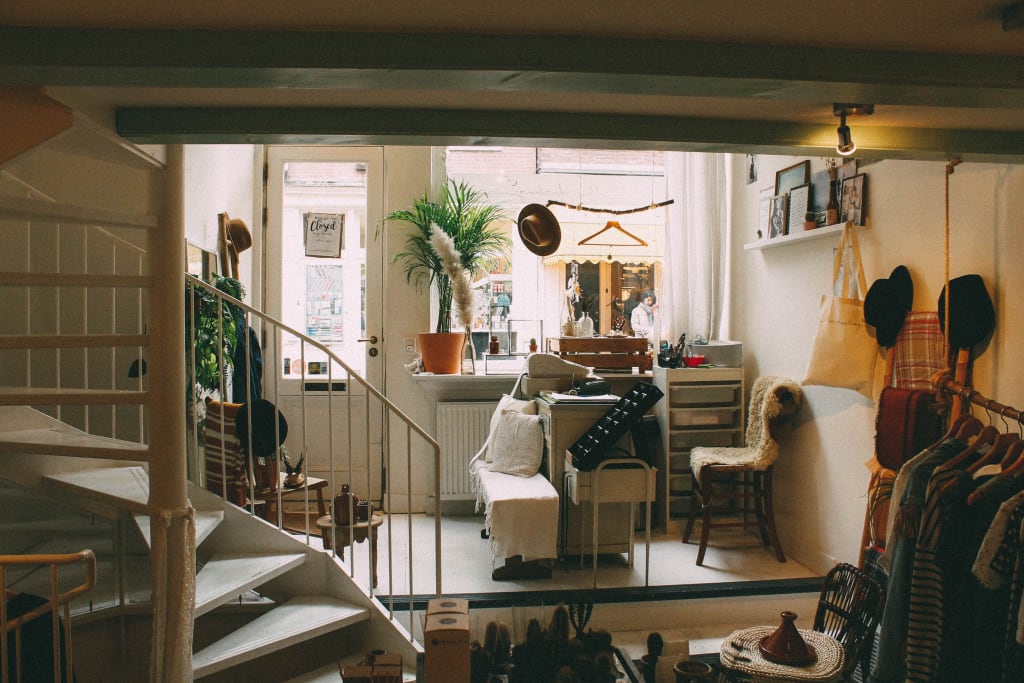A Guide for Household Safety: Tips You May Have Overlooked
Hidden Home Hazards

Your home is your haven and should be the safest place for your family. This is usually true, but there are some things that are overlooked by homeowners that can easily become a hazard in the future. Read on to learn about some things you may have failed to recognize or realize you could implement to improve your home’s safety:
- Air Pollution - Pollution in your home’s air is quite common, especially if invisible gases are making their way into your home from outside. Investing in an air purifier, avoiding smoking in the home, and making sure gas appliances are only on when necessary will help reduce the pollutant levels in your home.
- Bathroom Products - It’s a good idea to check your personal hygiene products like soap, shampoo, and anything else you put on your skin or hair for dangerous chemicals. Some of these can contain formaldehyde, preservatives and dioxane, which have been linked to organ toxicity and even cancer.
- Dead Batteries - Many homeowners forget to check their smoke alarm and radon monitor batteries twice a year like they should. New alarms should be purchased every 10 years and batteries should always be replaced once a year, whether they’re dead or not.
- Carpet - Carpet manufacturers add stain guards, dyes, and flame retardants to synthetic fibers in even their most popular floor coverings that can add chemicals to your breathing space. Whenever you install new carpet or buy a new rug, make sure you ventilate the area well with fresh air. Keeping it clean will also reduce the risk of moths, dust mites and mold.
- Dust - Dusting your home regularly will reduce the likelihood of dust mites, which feed off of these particles. These mites can contribute to allergies, respiratory distress and even eczema.
- Mold - Moisture and warmth cause mold to grow, which are both present in your bathrooms. Mold will cause respiratory illness, allergies, and asthma, and cause the immune system to not function properly. Cleaning the bathroom and fixtures regularly and allowing bathrooms to air out after using and cleaning them will help reduce mold occurrence.
- Plants - Plants such as deadly nightshade, foxgloves, and monkshood are poisonous and should only be handled while wearing gloves.
- Food - Expired food can cause foodborne illness, as well as how it is stored and handled. Make sure your fridge and freezer are maintaining the correct temperatures.
- Mirrors - Thinking about the placement of mirrors will reduce chances of small children breaking them, and can help prevent home fires. Mirrors placed in the path of direct sunlight can reflect onto soft surfaces and cause a fire.
- Large Furniture - This safety hazard is especially poignant if there are small children in the home. Climbing on furniture or pulling on mounted shelves, televisions and even large dressers can cause life-threatening injuries to children if they accidentally pull it down onto them.
- We should also not forget about the safety of senior citizens who are faced with a variety of dangers in their houses. All obstacles have to be removed like cords and coffee tables. A non-slip surface in bathtubs and on stairs is also required.
Keeping Pets Safe
Pets are most likely to succumb to poisoning in the home when they eat or play with something they shouldn’t. Always keep chemicals and cleaning supplies stored where your curious pets can’t get to them, and keep tabs on the types of houseplants you have. Many types of lilies are toxic to cats, as well as poinsettias.
Food should be locked up where your pet can’t get to it, either. Raisins, grapes and onion soup mix for example are toxic to both cats and dogs. Gum should also not be within reach of your animals.
Keep chemicals in the garage on a shelf or in a cabinet where animals can’t get to them, either. You should also consider any plants in your yard or garden and determine if any of them can be poisonous to animals. If they are, remove them to avoid any confusion and reactions. Pet owners should absolutely pet-proof their home to keep pets safe from any dangers.
How to Improve Your Home’s Safety
In order to improve your home’s safety, there are several things you can do on a regular basis.
- Keep firearms locked in a safe.
- Douse cigarette butts with water before throwing away.
- Store firewood and combustibles away from your home.
- Draw the blinds and curtains when you plan on being away.
- Clean up after meals to avoid pet poisoning and make sure trash is always out of reach or covered with a lid.
- Check that all electronics, lights, and appliances are turned off before leaving home.
- Never leave a room that has a candle or other open flame burning.
- Anchor heavy furniture to walls and secure any heavy hanging items to ensure they won’t fall on anyone.
- Keep lighters out of the reach of children.
- Clean your home as regularly as possible.
Following these steps as closely as possible can greatly reduce the risk of accidents in your home and increase safety for everyone who lives or visits there. If you are moving into a new house don’t forget to take safety measures before choosing the right on. Knowing the history and the property details of the house you want to buy is essential because there may be hidden hazards you can’t overlook.
About the Creator
Emily Andrews
Emily Andrews is the marketing communications specialist at RecordsFinder, an online public records search company. Communications specialist by day and community volunteer at night, she believes in compassion and defending the defenseless.






Comments
There are no comments for this story
Be the first to respond and start the conversation.